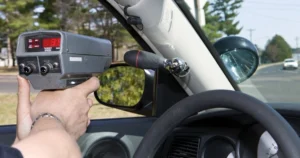 Rear-end collisions are one of the most common types of car accidents in the nation.
Rear-end collisions are one of the most common types of car accidents in the nation.
In 2014 alone, there were approximately 1,966,000 of these crashes, making up 32.4 percent of the total number of collisions involving another motor vehicle. Approximately 522,000 of these accidents led to injuries, according to data from the Insurance Information Institute.
The South Bend auto accident attorneys at our firm have compiled important information about these accidents, including the types of injuries they cause, how fault is determined and the types of compensation victims of these crashes may be entitled.
Rear-End Collision Injuries
Even at low speeds, rear-end accidents can result in serious injuries. However, high-speed rear-end accidents tend to be more severe and may even result in death. This is particularly true if there are passengers in the back of the vehicle.
The following injuries are often associated with rear-end collisions:
- Head trauma and concussions
- Lacerations
- Facial injuries
- Soft tissue damage
- Spinal cord injuries
- Whiplash
- Sprains
- Fractures
Determining Fault for Rear End Collision
The driver of the vehicle that rear-ends the other car is usually found to be at fault for causing the accident. This is especially true in situations where the driver who was hit was at a complete stop at the time of the crash.
Fault is typically assessed to the rear driver because he or she had the last opportunity to prevent the accident and the first driver may not have even known about the potential for an accident.
Another reason the rear driver is typically found to be at fault is that he or she was engaging in some form of reckless driving, including:
- Following other vehicles too closely
- Failing to maintain control of the vehicle
- Speeding
- Distracted driving
However, there are situations where the front driver may have been entirely at fault or share fault with the other driver.
For example, if the first driver stopped suddenly because he or she needed to adjust for their own inattention, the delayed action likely contributed to the accident. If your taillights are out at the time of the crash, you may be partially at fault as well.
Potential Compensation if You Were Rear-Ended
In Indiana, you may file a personal injury lawsuit if you have been rear-ended. This claim may allow you to recover compensation for your injuries related to the accident. Damages awarded in these types of cases may include:
- Lost wages
- Medical expenses
- Pain and suffering
- Property damage
If a loved one was killed in a rear-end collision, you may be entitled to additional types of compensation, including:
- Intangible losses related to losing the love, support and companionship of your family member
- Lost income
- Funeral and burial expenses
Contact a Respected Personal Injury Attorney
If you were injured in a rear-end accident, schedule a free, no obligation legal consultation with one of our personal injury lawyers to evaluate your case.
We will thoroughly investigate the accident to determine if you have grounds for a lawsuit. If you do, we will evaluate all of the evidence to try to determine what your case is worth. We want you to receive all of the compensation you deserve.
Call our office today to schedule a consultation. (574) 444-0741












